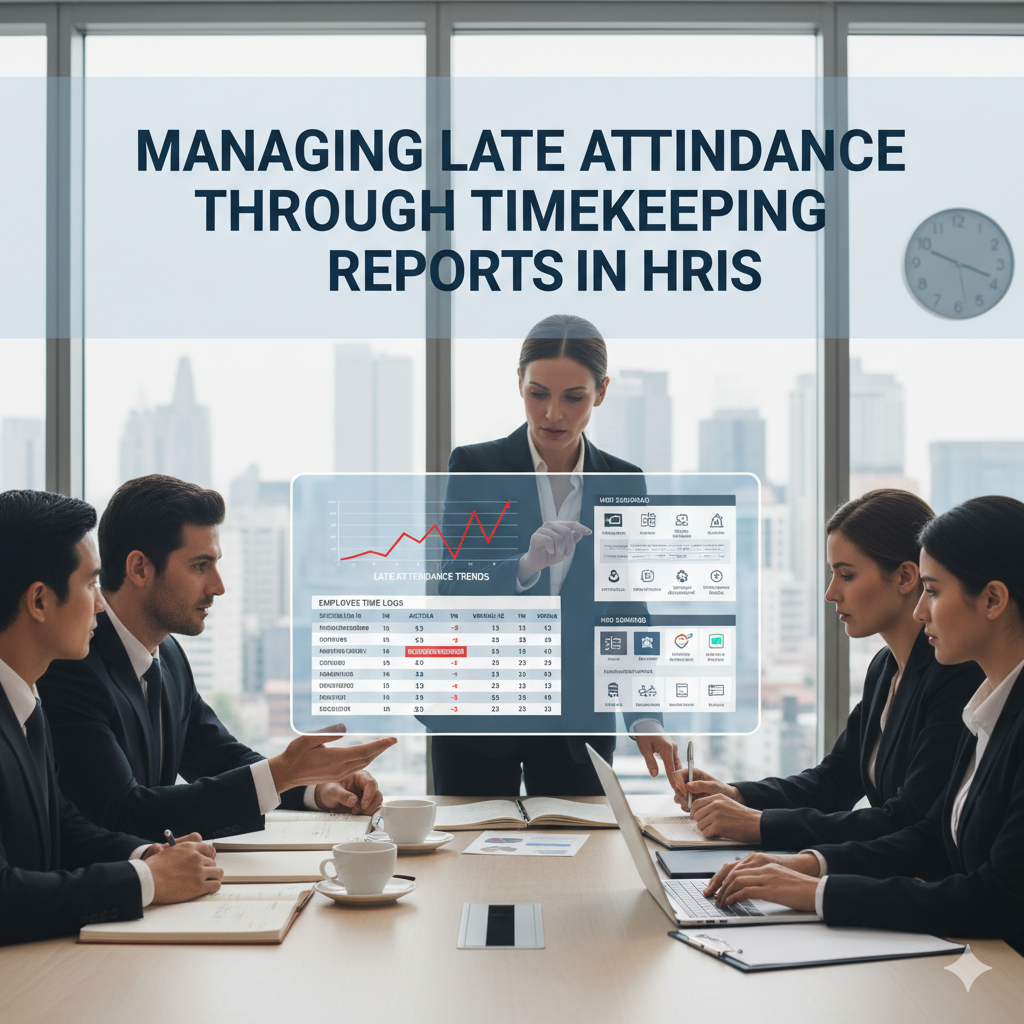Address
Kaypian, San Jose Del Monte City, Bulacan Philippines
Work Hours
Monday to Friday: 8AM - 6PM
Weekend: 10AM - 5PM
Address
Kaypian, San Jose Del Monte City, Bulacan Philippines
Work Hours
Monday to Friday: 8AM - 6PM
Weekend: 10AM - 5PM


Integrated HR. Accurate Payroll.


Integrated HR. Accurate Payroll.

Employee punctuality directly impacts productivity, payroll accuracy, and organizational discipline. However, tracking and managing late attendance manually can be time-consuming and error-prone — especially in large organizations.
This is where Human Resource Information Systems (HRIS) come in. Modern HRIS platforms automatically generate Timekeeping Reports that record attendance data, highlight late logins, and help HR teams analyze tardiness patterns effectively.
In this article, we’ll explore how Timekeeping Reports in HRIS make managing late attendance more efficient, transparent, and data-driven — ultimately ensuring better payroll accuracy and employee accountability.
Late attendance refers to any instance when an employee reports to work after their scheduled start time.
While occasional lateness may be unavoidable, repeated tardiness can cause:
HR departments must track and address these patterns fairly and efficiently — and that’s where HRIS Timekeeping Reports play a key role.
Modern HRIS systems automate attendance tracking and instantly identify dates with late logins or time-ins.
Here’s how the process works step-by-step:
Tracking and managing late attendance isn’t just about discipline — it’s about fairness, accuracy, and productivity.
Here are the main reasons why it’s essential:
| Benefit | Description |
| Payroll Accuracy | Late arrivals can affect paid hours and overtime; reports ensure correct salary computation. |
| Operational Efficiency | Teams start on time, reducing workflow interruptions. |
| Employee Accountability | Transparent tracking encourages punctuality and responsibility. |
| Policy Compliance | Helps enforce attendance and timekeeping policies fairly. |
| Data-Driven Insights | HR can identify departments or employees with frequent tardiness. |
A well-configured HRIS Timekeeping Report includes detailed and actionable data. Typical features include:
This level of detail helps HR teams maintain transparency and avoid disputes.
✅ 1. Streamlined Payroll Processing: Late arrivals affect payable work hours. Automated reports ensure deductions or adjustments are applied accurately and consistently.
✅ 2. Reduced Manual Errors: Instead of manually tracking attendance logs, HRIS automatically compiles and validates all late entries, reducing the risk of mistakes.
✅ 3. Better Decision-Making: Managers can analyze patterns (e.g., recurring lateness on Mondays) and address them through training, coaching, or policy adjustments.
✅ 4. Improved Employee Discipline: When employees know that attendance is tracked transparently, punctuality naturally improves.
✅ 5. Audit-Ready Documentation: Timekeeping Reports provide a reliable audit trail of attendance compliance for HR reviews and legal requirements.
Here’s how a typical workflow looks in an HRIS system:
This end-to-end automation eliminates manual tracking, making attendance management faster and more reliable.
Late attendance, when unmanaged, can create payroll errors and reduce productivity. But with Timekeeping Reports in HRIS, organizations can automatically track, report, and address tardiness — ensuring accuracy, fairness, and operational efficiency.
By leveraging HRIS automation, HR teams can maintain punctuality standards, streamline payroll processes, and foster a culture of accountability — turning attendance management into a strategic advantage.